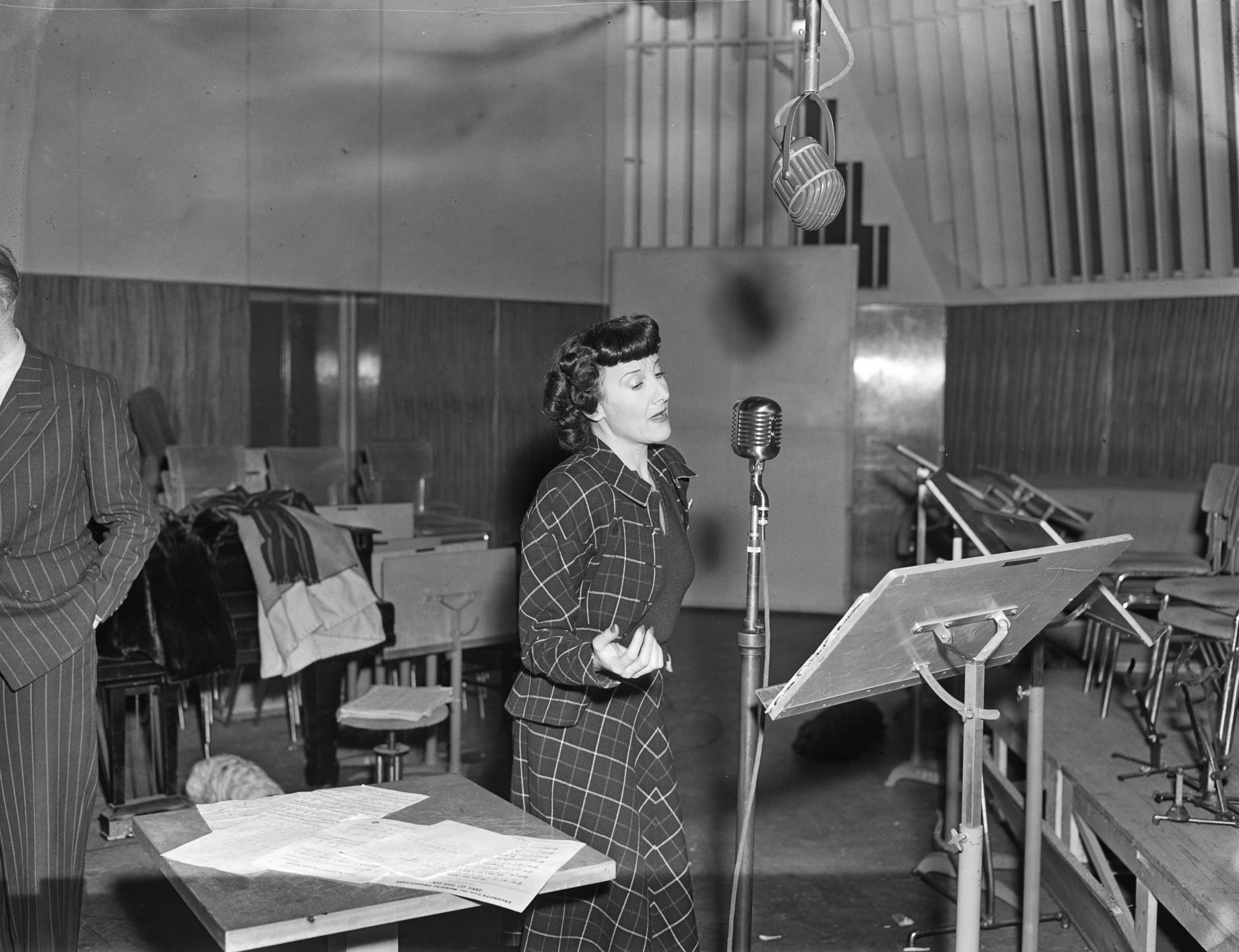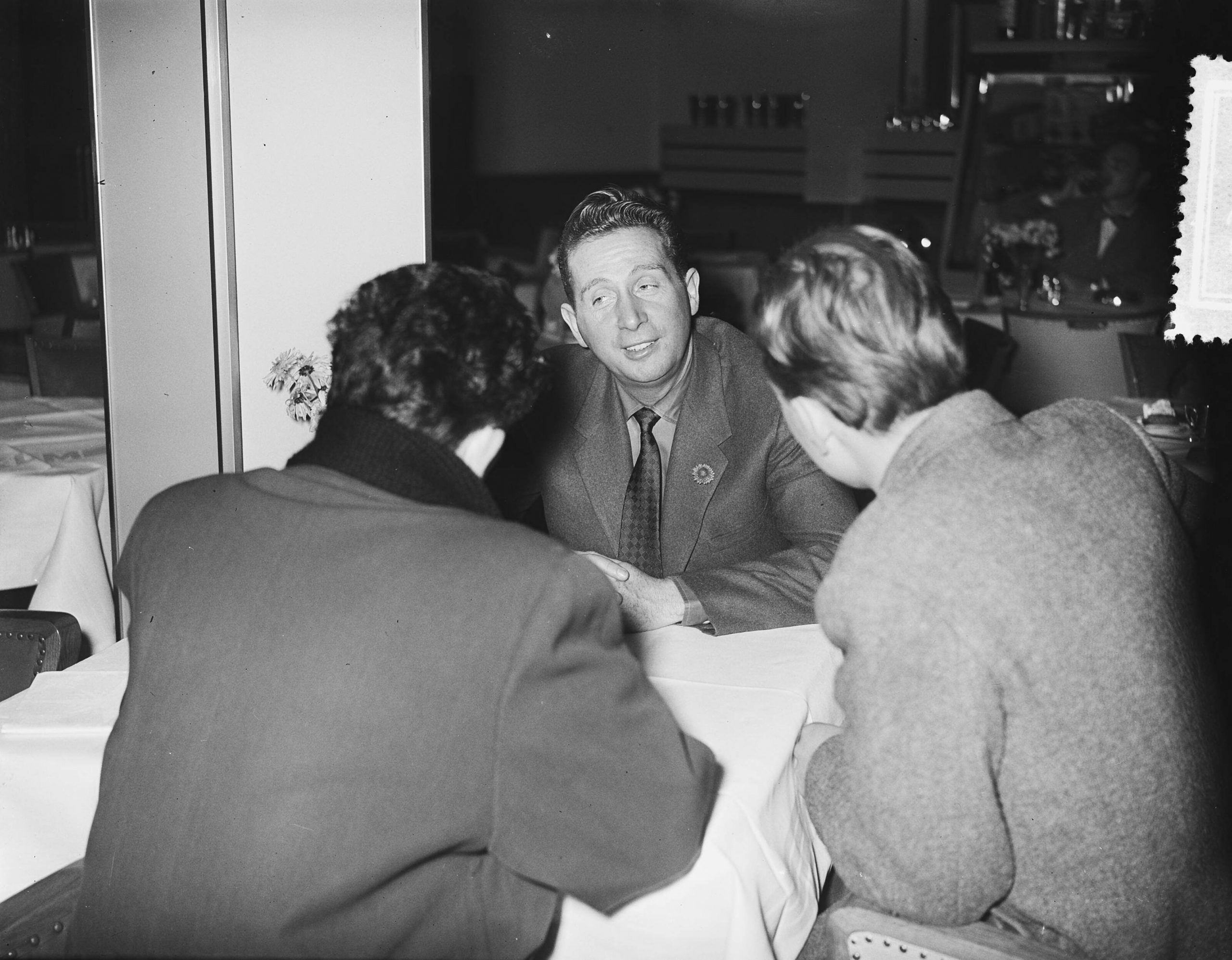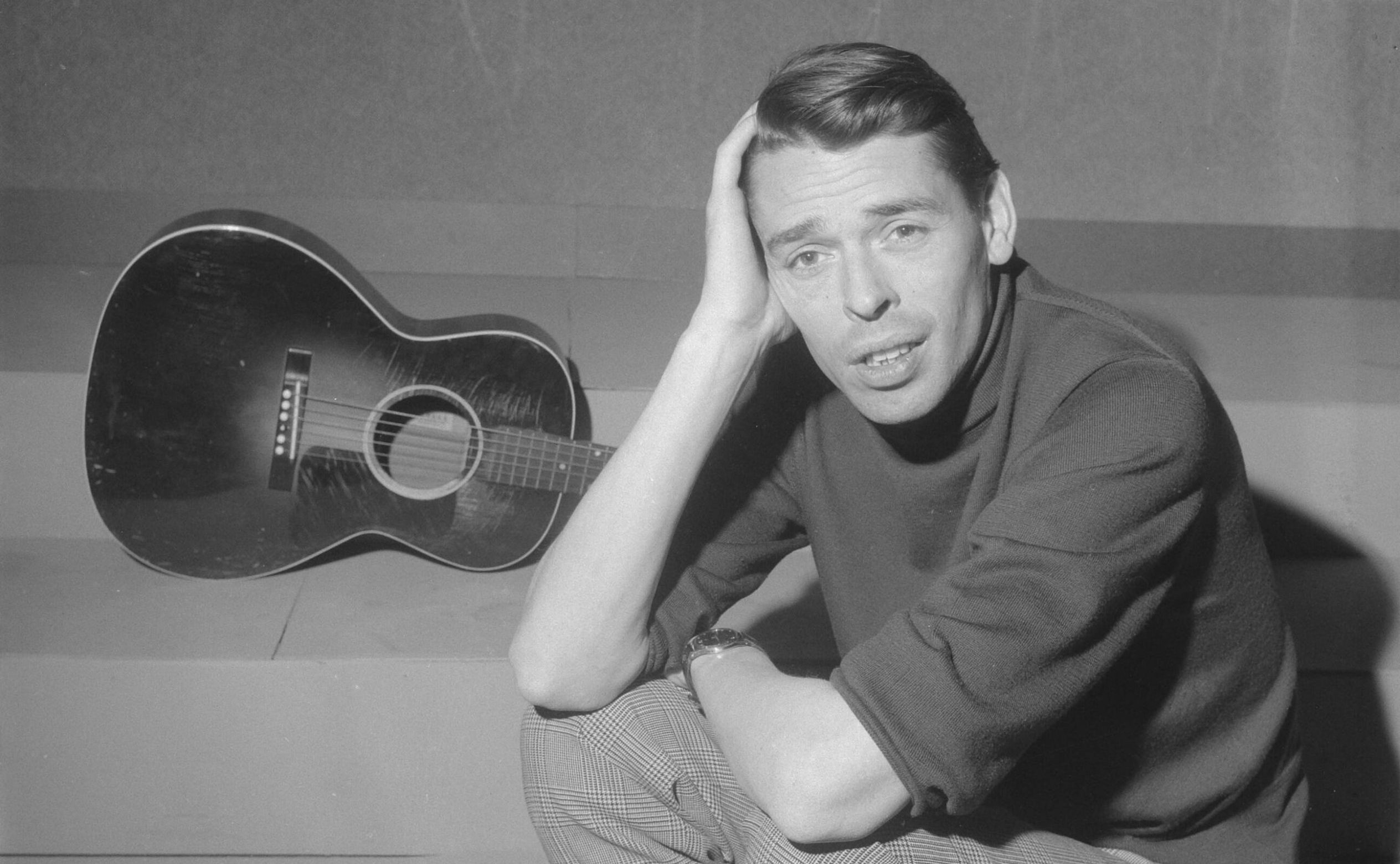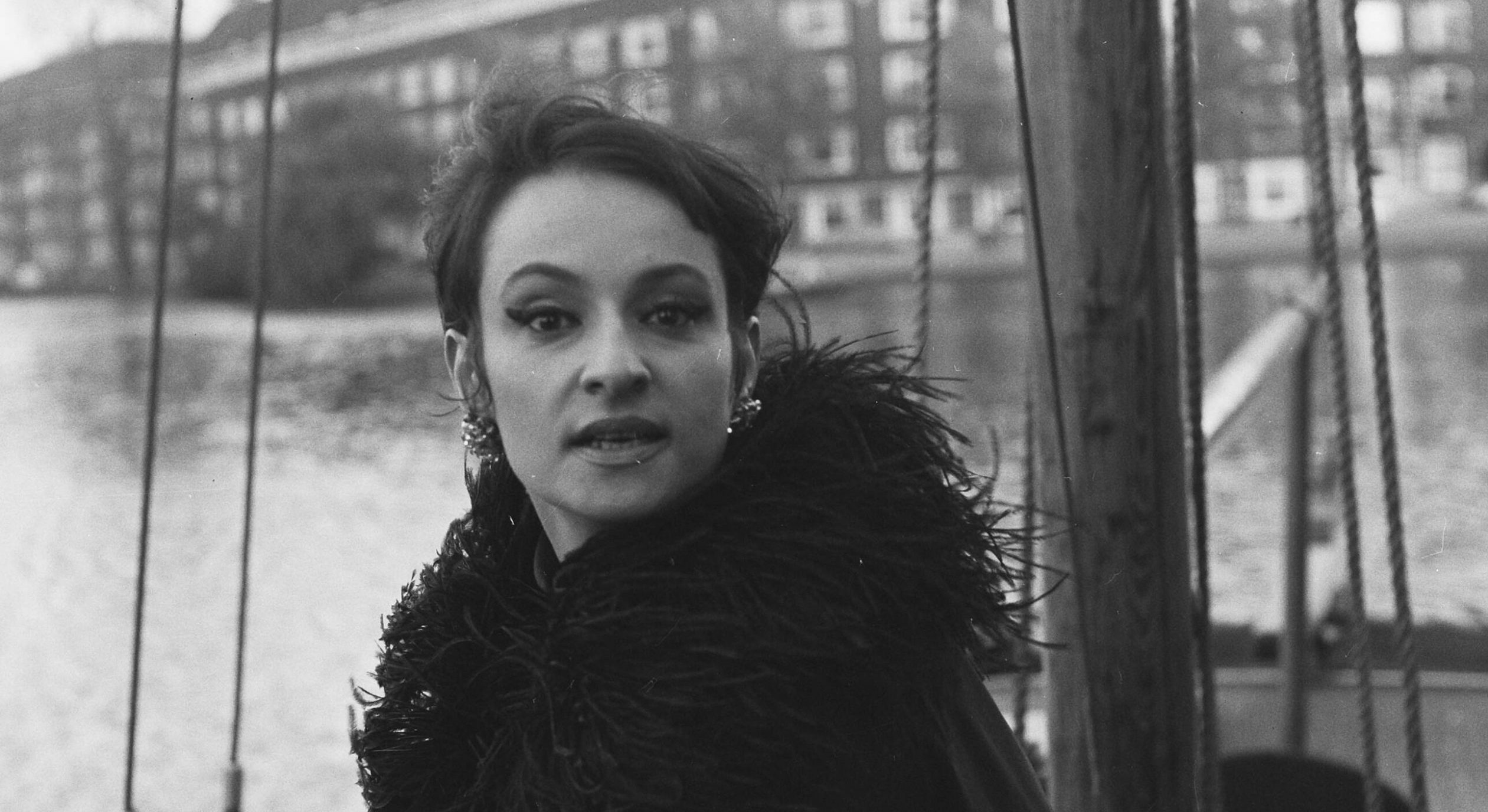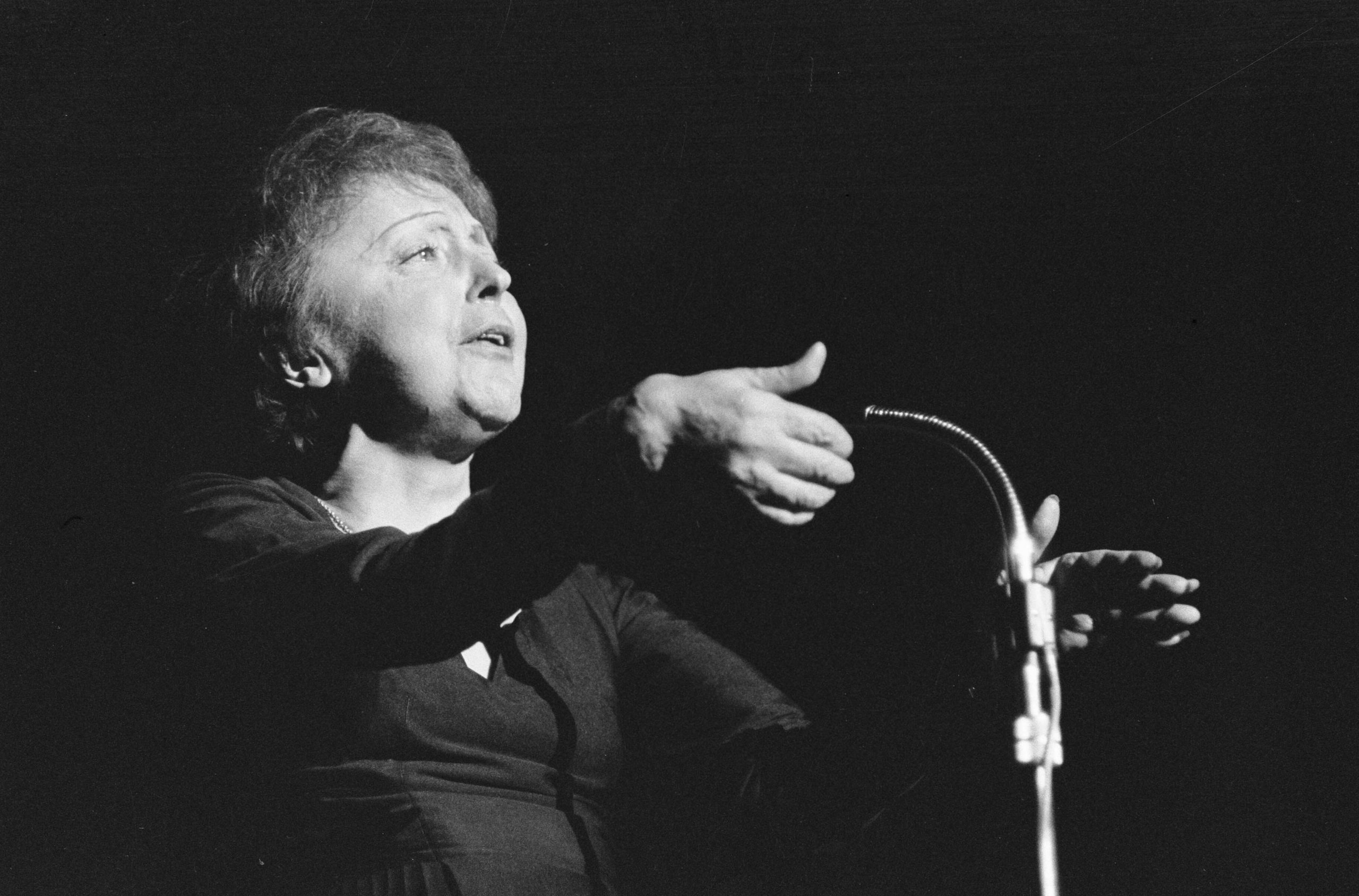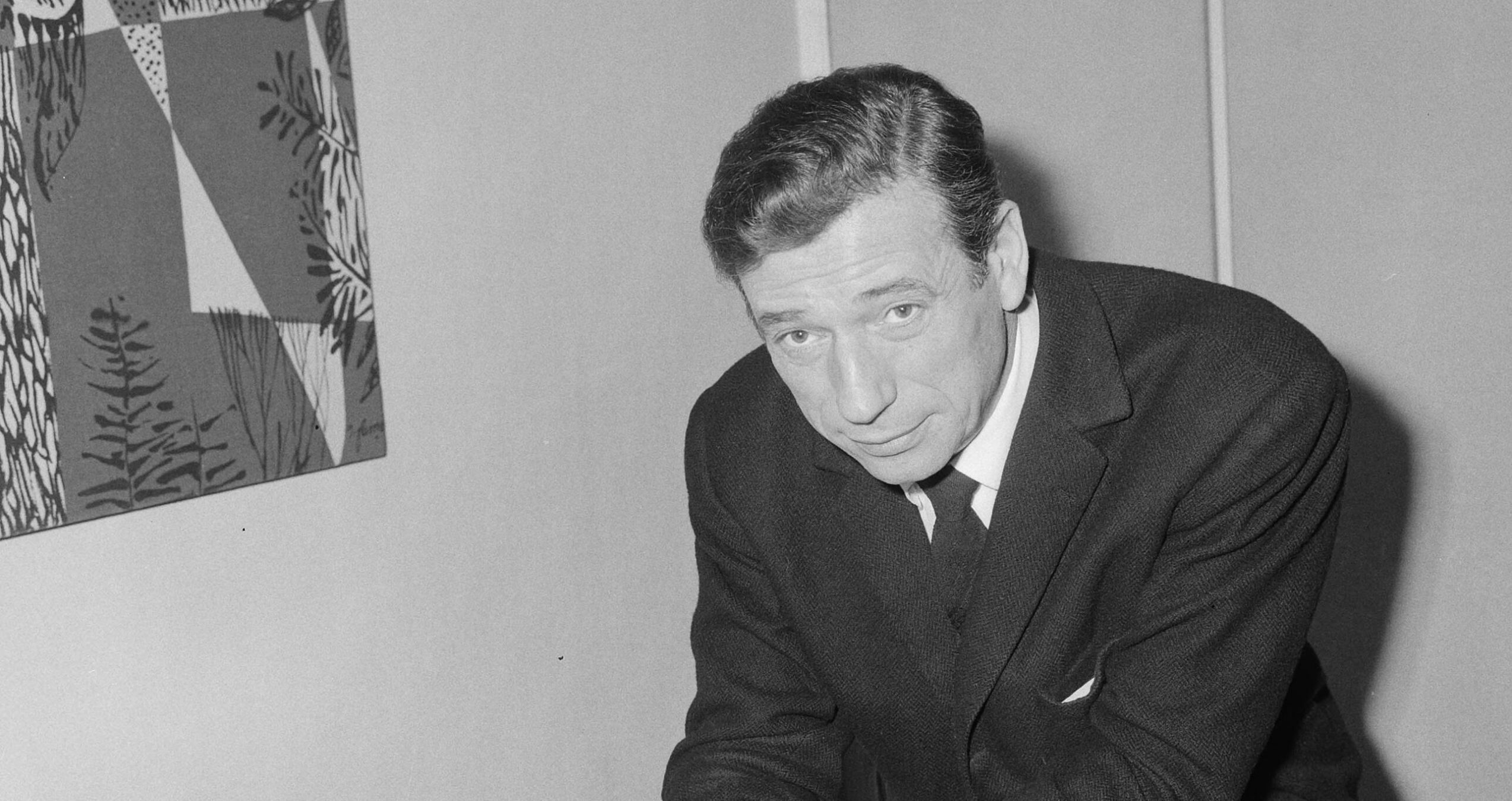At the beginning he was a “nobody,” Udo Jürgens said looking back on the start of his career. At the beginning of his career as a singer, he mainly sang “pepino music,” as he later called the rather meaningless Schlager music of the sixties and seventies that was played on the radio on a daily basis: Although it was clear to him from the start that he could only shine with his own compositions, the German record industry did not trust him to do so. Jürgens was never fully behind interpreting the music of other composers – consequently, he did not celebrate a single success at the beginning of his career. Later, he was glad to have achieved success only with his own compositions: “Under certain circumstances, I could have made a fast buck in the short term, but I probably wouldn’t have found my true path,” Jürgens said in retrospect.
The German record industry didn’t want to hear anything further from Udo Jürgens if he didn’t want to interpret the works of other composers. It wasn’t until the sixties that a French record company signed him, and explicitly expressed the wish that Jürgens only interpret his own compositions. But the road to this point was not a short one…
Sojourn in the USA and Shirley Bassey
Udo Jürgens, who was a student at the time, described a long stay in the USA in 1957 as very formative for the rest of his life: during this time he traveled around 25,000 kilometers through the United States with other students and gathered impressions that he would never forget throughout his entire life.
Throughout his career, he had a special relationship with U.S. show business: he admired the professionalism of American stage business and drew much inspiration for his own works there, but Udo Jürgens never wanted to become a part of this show business.
When the singer received his first recording contract in 1956, his stage name Udo Jürgens was used for the first time: His first records were flops, however, and he was not granted any artistic freedom. Only when Jürgens composed the world hit Reach For The Stars for Shirley Bassey did he prove that he had great talent as a composer: Jürgens also met the manager Hans R. Beierlein, who encouraged Jürgens to only interpret his own compositions – Beierlein would then take care of the marketing…
In the seventies, hardly a year went by without Jürgens going on tour – the numbers of visitors were overwhelming and were hardly matched by other artists.
Warum nur, warum?
One of the first hits Jürgens celebrated as a composer was Warum nur, warum? [Walk Away]: With this hit he took part in the Grand Prix Eurovision in Copenhagen in 1964. Matt Monro, who had just celebrated a great success with his interpretation of the first James Bond song From Russia with Love, recorded an English version of Warum nur, warum? titled Walk Away and celebrated a number one success with it. Udo Jürgens’ music had found its way out into the whole world by the mid-sixties. As the sixties and early seventies progressed, Udo Jürgens gradually became recognized as a chansonnier – in addition to record releases, Jürgens went on numerous tours that made him an extremely sought-after artist, especially in German-speaking countries. During his “Udo ’70” tour, the singer visited 266 cities. In the seventies, hardly a year went by without Jürgens going on tour – the numbers of visitors were overwhelming and were hardly matched by other artists.
But Jürgens was not only a famous singer in German-speaking countries by now: in 1974, for example, he performed in Rio de Janeiro in front of almost 40,000 people – it was not very common that there was such great interest in a German-speaking artist in South America. The biggest hits that Udo Jürgens released in the seventies and that are still remembered today include Griechischer Wein, Aber bitte mit Sahne and Tausend Jahre sind ein Tag.
Tausend Jahre sind ein Tag (A thousand years is a day)
Udo Jürgens was not a simple pop singer who was content to sing to the audience about love, happiness and disappointments in life: his songs often had a socially critical content, like his composition Tausend Jahre sind ein Tag. The fact that that song was used as the theme music for a French animated series for children about the history of mankind was no coincidence: after all, in the course of the song Jürgens repeatedly questions the human understanding of time with his question Was ist Zeit? (What is time?) But the song goes deeper than one might think at first: With passages like Wer alles hat, kriegt noch Rabatt (Who already has everything gets a discount on top) or Die schöne Lüge vom Goodwill (The nice lie of goodwill), the song is clearly based on a socio-critical thought. Many a child may have frowned when listening to this theme music for a cartoon series, but many an adult’s eyes may have been opened by such songs.
This is what Udo Jürgens’ music was known for: Simply addressing emotional states or life situations with his songs was not enough for him. His goal was to carry a message out into the world with his own compositions and to make the listener think. That may also have been Jürgens’ secret to success.
Not only could he work hard, his work virtually always matched the zeitgeist and inspired many millions of people around the world.
Attitude towards work
For Udo Jürgens, the live event had great significance: the fact that “mistakes” can occur to the artist at a live concert was part of the charm of the live concert for him. “There are few concerts where I don’t make any mistakes at all,” Jürgens once stated – but often the audience might not have noticed the mistakes at all, because a live event is something different than a recording, where the result is worked on for so long until everything is perfect. Without his legendary live tours, Udo Jürgens would hardly be the artist who carried his song art and musical talent around the world like no other of his generation: His success as a songwriter and singer reached as far as Japan. In Japan, Jürgens particularly admired people’s attitude to work: “For the Japanese, work is not merely necessary, but essential and important for a person’s mental balance. (…) There, work is something beautiful, whereas in our culture it gets demonized,” the singer once confessed.
Udo Jürgens had a special relationship with his work as a singer and songwriter: not only could he work hard, his work virtually always matched the zeitgeist and inspired many millions of people around the world.
The “spirit of the individual”
Even as Udo Jürgens grew older, he did not remotely think of cutting back or even stopping his work altogether: For the artist, who remained mentally and psychologically young through his work, it was precisely old age that prompted him to continue his artistic work to the familiar extent and beyond.
When Udo Jürgens died in 2014 at the age of eighty, he was still completely involved in show business: It can be said that Jürgens was on stage almost until his last breath, wearing the iconic dark blue tuxedo and red pocket square, performing his songs for his audience. The phenomenon Udo Jürgens was unique in the world of music until today and will probably never exist a second time – his unique songs will outlive him by many decades.
Throughout his life, Udo Jürgens was a “musical maverick”: for him, it was the “spirit of the individual” that spoke through his music and was thus able to unfold. Although Jürgens himself counted records by musical groups such as Supertramp among his favorites, he could not give blanket approval to making music in groups: After all, when watching a John Wayne movie, one wants to see the maverick John Wayne fighting evil and injustice according to the “one versus all” principle – and not a group in which the spirit and thoughts of the individual have to submit to group pressure.
Main source: Simon, Christian: “Ich, Udo – Gespräche mit Christian Simon”, 2016 LangenMüller
Cover picture: Udo Jürgens in 1966 during the music show Hits à Gogo on Swiss television.
Picture credit: ETH-Bibliothek Zürich, Bildarchiv / Fotograf: Comet Photo AG (Zürich) / Com_C15-032-003 / CC BY-SA 4.0

 Deutsch
Deutsch Français
Français
